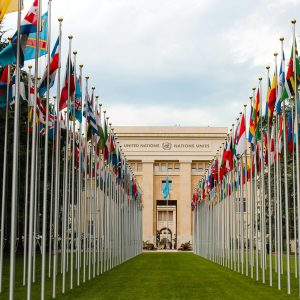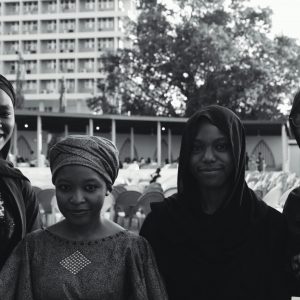American Muslims reflect impact of 9/11 attacks on 22nd anniversary
Post-9/11 saw 1,617% increase in hate crimes against Muslims, marking one of the most intense phases of anti-Muslim sentiments in U.S. history
WASHINGTON – On the eve of the 22nd anniversary of the tragic attacks of 9/11, American Muslims are reflecting its impact on their lives.
The attacks, which claimed nearly 3,000 lives, affected the whole world, but for American Muslims, they meant challenging times.
Many Muslims were wrongly accused and associated with the attacks, leading to widespread Islamophobia.
After 9/11, Muslims in the U.S. increasingly faced Islamophobic attacks, a sentiment that continues today.
Khaled Ali Beydoun, a legal scholar at Wayne State School of Law, says the problem has not remained confined to the United States.
He said America has “exported “Islamophobia” around the world, possibly influencing other countries such as China, Myanmar, and India in their treatment of Muslims.
While Beydoun notes that Islamophobia is less prevalent today partly after Trump’s exit from the presidency, the problem remains.
Nihad Awad, co-founder of the Council on American-Islamic Relations (CAIR), explains that the post-9/11 backlash has been intense and violent.
After 9/11, the number of hate crimes against Muslims increased significantly, by 1,617% from 2000 to 2001.
Many Muslims, including Awad, faced increased scrutiny, and some were monitored by the U.S. government.
Despite the challenges, CAIR has grown and now has 60 full-time attorneys to address injustices against Muslims.
Awad stresses, however, that this growth does not mean the end of Islamophobia.
-Islamophobia embeds in fabric of American racism
Hussam Ayloush, CEO of the Council on American-Islamic Relations (CAIR-CA) California chapter, asserts that Islamophobia has embedded itself within the fabric of American racism.
He highlights that out of the roughly 5 million Muslims in the U.S., almost a million reside in California, where prejudice remains rampant.
More than half of Muslim students in California experience bullying due to their faith. Furthermore, the government watch list includes nearly 1.6 million individuals, predominantly with Muslim-sounding names.
The aftermath of 9/11 witnessed the U.S. government giving agencies like the FBI and CIA more authority to surveil Muslims, especially those from countries such as Syria, Libya, and Sudan.
Ayloush suggests that the George W. Bush administration seized 9/11 as an opportunity to portray Muslims as the enemy, leading to widespread scrutiny and suspicion against them.
Louise Cainkar, a professor specializing in Arab and Muslim American Studies, notes that Islamophobia was strong even before 9/11.
The events of 9/11 further solidified existing biases. Initially, many Muslims chose a more discreet lifestyle, but later established organizations to advocate for their rights, forging alliances with other groups and becoming integral to U.S. civil society.
Cainkar indicates that anti-Muslim stereotypes often reemerge during election seasons and times of war.
With the approach of the 2024 elections, past controversial policies from the Trump administration, such as travel restrictions on Muslim-majority countries, might be revisited.
Ayloush believes that Trump’s presidency intensified Islamophobia, but he also acknowledges that reporting of discrimination incidents has increased since 9/11.
While significant strides have been made to foster understanding, Ayloush remains realistic, acknowledging the challenge of completely eradicating Islamophobia or racism.
-Change of attitude in recent times
He emphasizes the collective responsibility to stand against these prejudices, asserting that passive acceptance makes one complicit in the problem.
A change in official attitudes toward Muslims has been evident in recent U.S. administrations.
President Joe Biden reinstated the White House tradition of hosting an Eid celebration, which was disrupted by Trump.
A meeting on Islamophobia was also held at the White House, facilitating dialog between government officials and Muslim community leaders.








